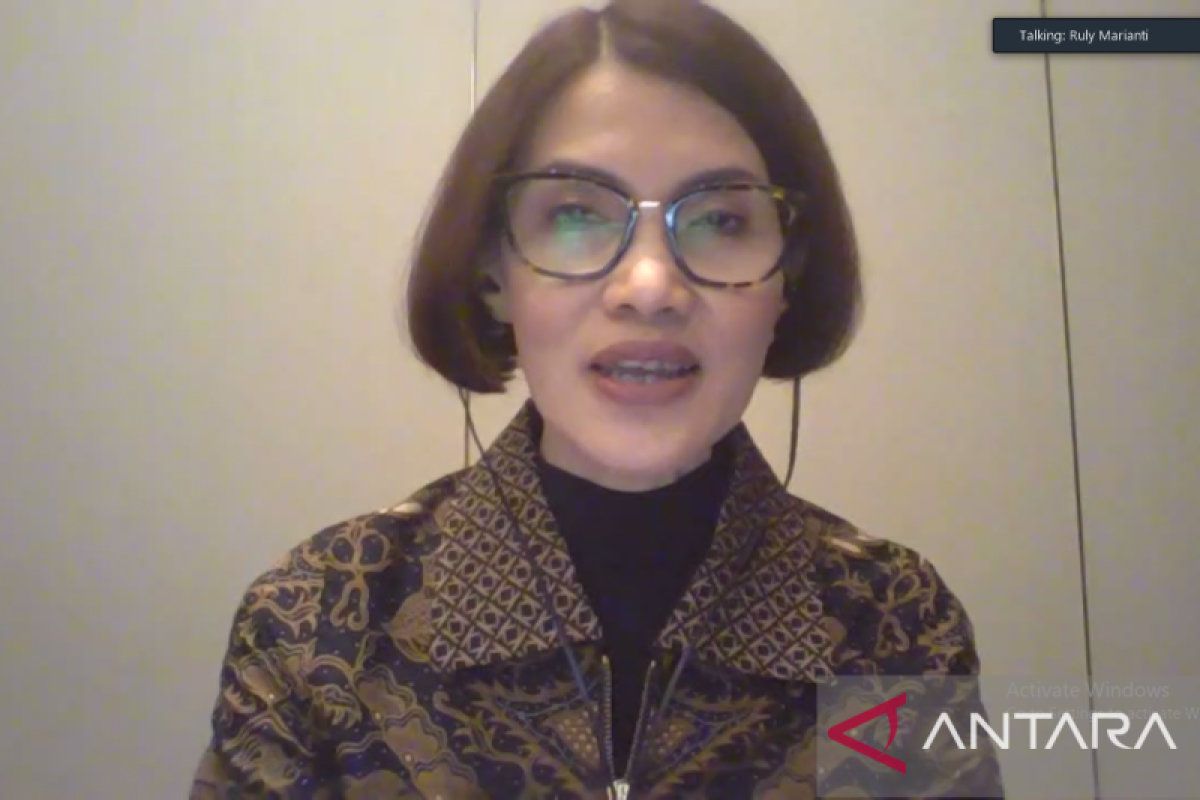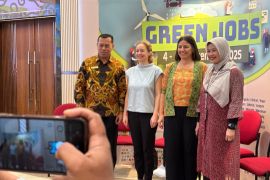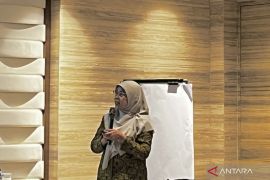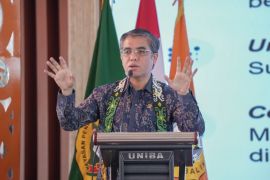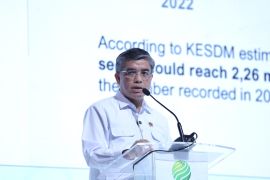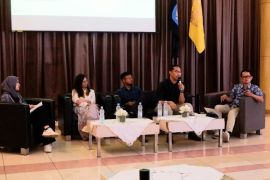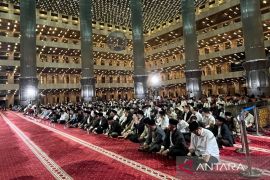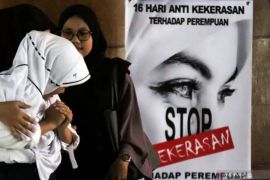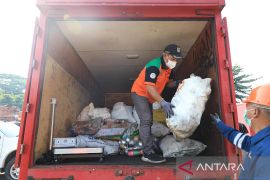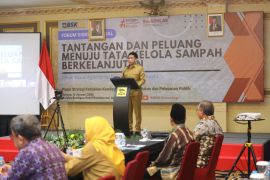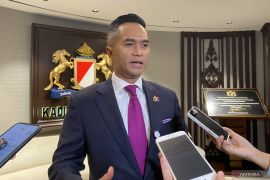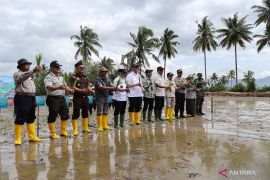"This project is a sustainable development collaboration between the Indonesian Government and the German Government to promote green jobs. This project focuses on the renewable energy sector, especially the electricity sector," Head of the Innovation and Investment Project for ISED Phase II Ruly Marianti stated in Jakarta, Friday.
During Indonesia's Green Jobs Conference 2023 press conference themed "Institutionalizing Green Jobs," Marianti remarked that the collaboration was carried out under the framework of the Innovation and Investment for Inclusive Sustainable Economic Development (ISED) project.
The promotion and development of green jobs in the country aligns with Indonesia's efforts to achieve the target that new and renewable energy (EBT) should contribute at least 23 percent to Indonesia's primary energy mix by 2025 and 31 percent by 2050.
Marianti believes that in order to achieve the renewable energy target, it is crucial to prepare human resources to have adequate skills to support the industry.
The ISED project aims to encourage green jobs in the energy sector, especially in the field of renewable energy, through strong and coordinated involvement of the private and public sectors.
To achieve those goals, training courses in the field of renewable energy must be reformed and new, innovative labor market-oriented training courses must be introduced.
Moreover, it is necessary to facilitate improvements in the institutional and regulatory framework to ensure the promotion of environmentally friendly jobs in the long term.
The ISED project has three areas of work: increasing private sector involvement, increasing skills or vocational education and training, and strengthening the institutional framework.
The ISED project collaborates closely with various industry associations related to various renewable energy technologies to develop competency standards and formulate strategies and skills development models to bridge industry needs with workforce skills that should be provided by the world of vocational education and training.
Moreover, the ISED project facilitates or supports various stakeholders to conduct training aimed at workers in the renewable energy sector, fresh graduates, and job seekers.
The ISED project has conducted training for more than 1,250 participants in various renewable energy technologies.
The ISED project also facilitated the certification of 148 vocational school teachers and the development of modules that can be used by teachers to enrich their education and training programs.
"The key is communication or engagement from the private sector systematically and synchronous involvement in the development of 'green jobs', including in enriching and improving curriculum teaching materials in vocational schools," she explained.
Earlier, the National Development Planning Agency (Bappenas) targeted 1.8 million workers in the green economy sector by 2030 in the energy, electric vehicle, land restoration and waste sectors.
According to the Green Economy Index report, transition efforts towards a green economy can provide various benefits for Indonesia, including an average GDP growth of 6.1-6.5 percent per year until 2050, 87-96 billion tons of savings in greenhouse gas emissions during the 2021-2060 period, and up to 68-percent reduction in emissions intensity by 2045.
Related news: Cirata floating solar power plant biggest in ASEAN: Jokowi
Related news: UIN Suska explores renewable energy research collaboration with TU/e
Related news: Potential for generating renewable energy from palm waste: KSP
Translator: Martha Herlinawati Simanjuntak, Cindy Frishanti Oc
Editor: Azis Kurmala
Copyright © ANTARA 2023
